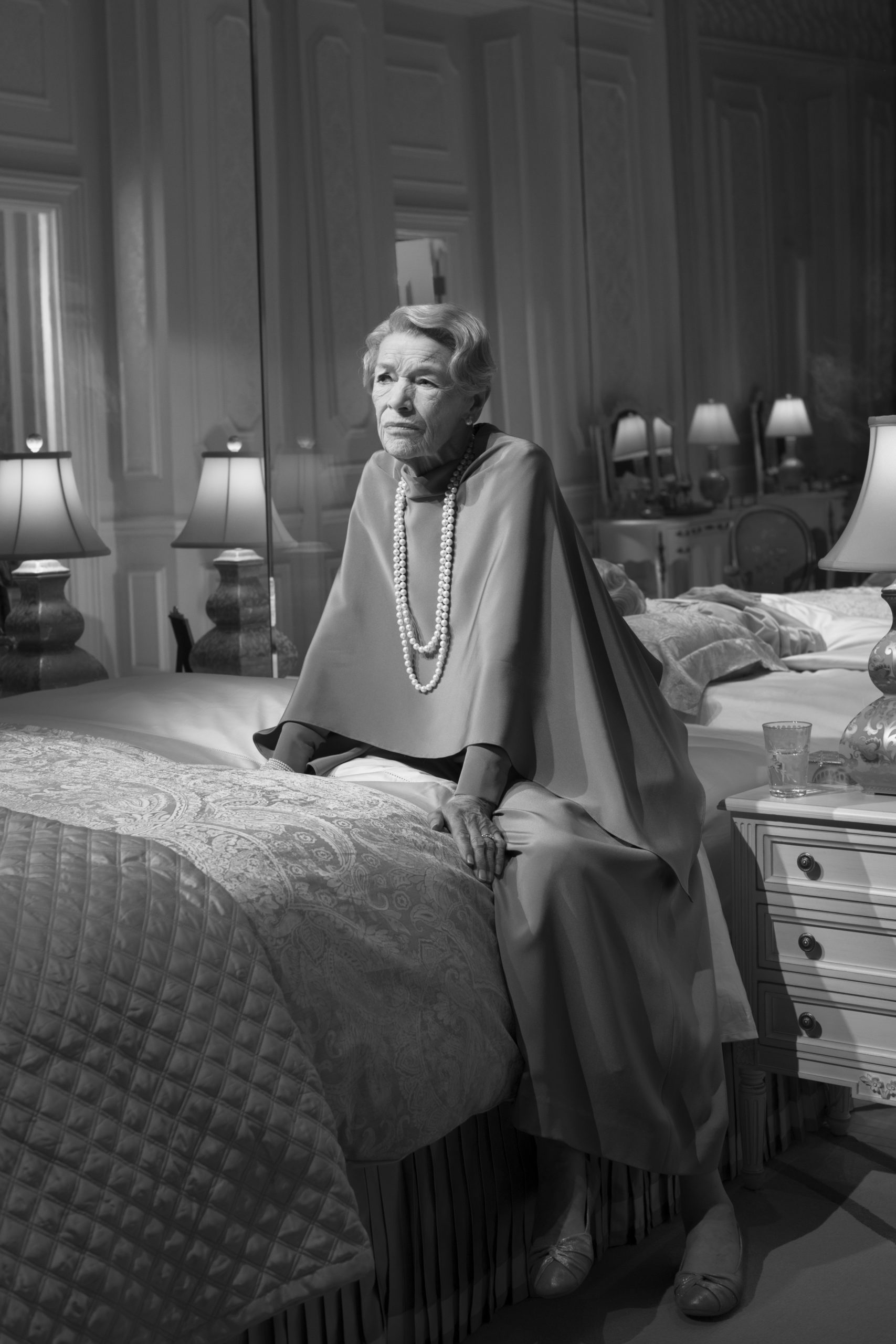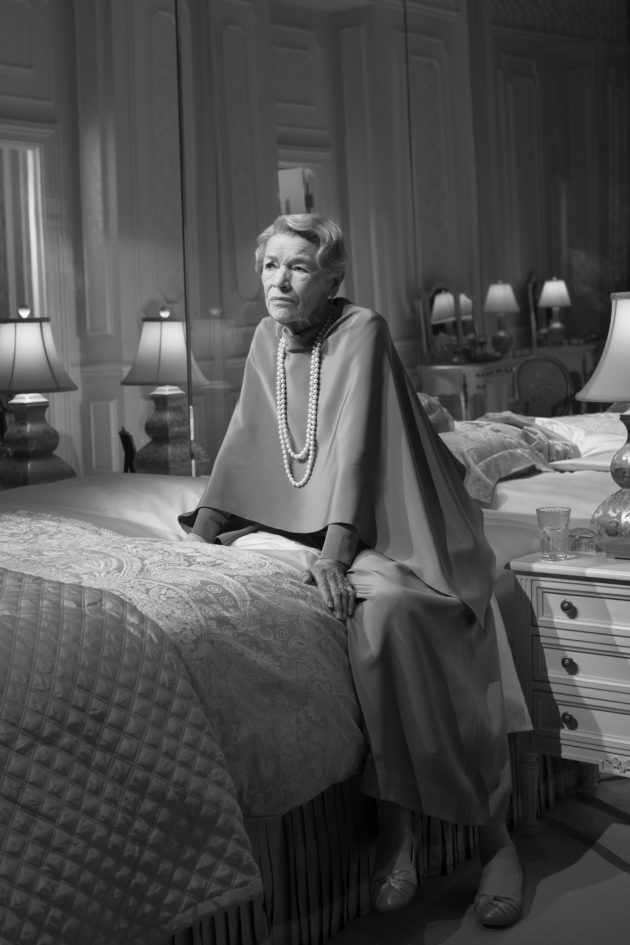
What Is a Feminist Audience to Make of Albee’s Anti-Semitic Matron?

Glenda Jackson in Edward Albee’s Three Tall Women, directed by Joe Mantello, at the Golden Theatre. Photo credit: Brigitte Lacombe.
Edward Albee often said that he modeled the main character in “Three Tall Women” on his adoptive mother, from whom he was estranged and about whom he never had anything good to say.
If it’s a revenge play, as some people have speculated, then he failed, though he presents the old woman with all her failings, including an anti-Semitic (and racist) streak. But the two-act drama now at the Golden Theater on Broadway is far more nuanced than that.
First of all, it is a terrific play and a terrific production, often bitterly funny about the indignities of aging. (I don’t recall laughing much, or hearing much laughter, during its 1994 Off-Broadway debut.)
The play is also, it turns out, far more forgiving and understanding about the flinty, demanding and frequently imperious central character played by Glenda Jackson than the playwright perhaps intended. Or, more likely, he did intend, as he explored the reasons for his mother’s extreme discontent, to come to terms with how she treated him. And to allow audience members to come to their own conclusions.



